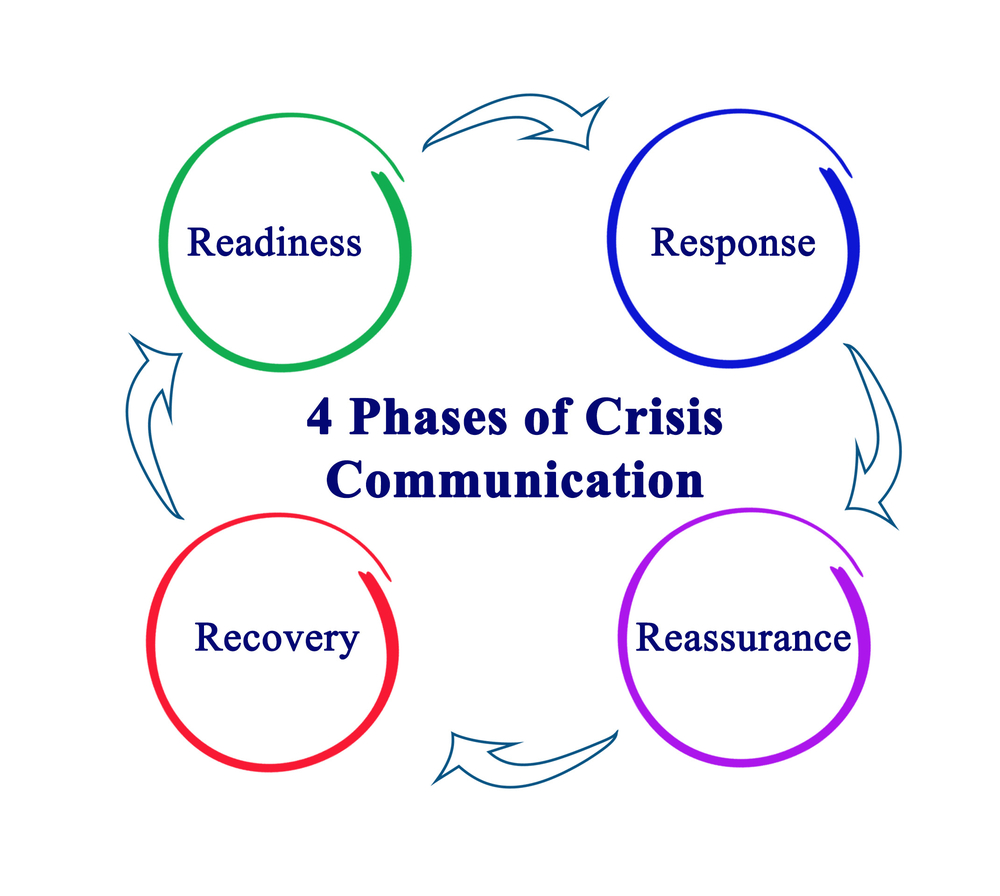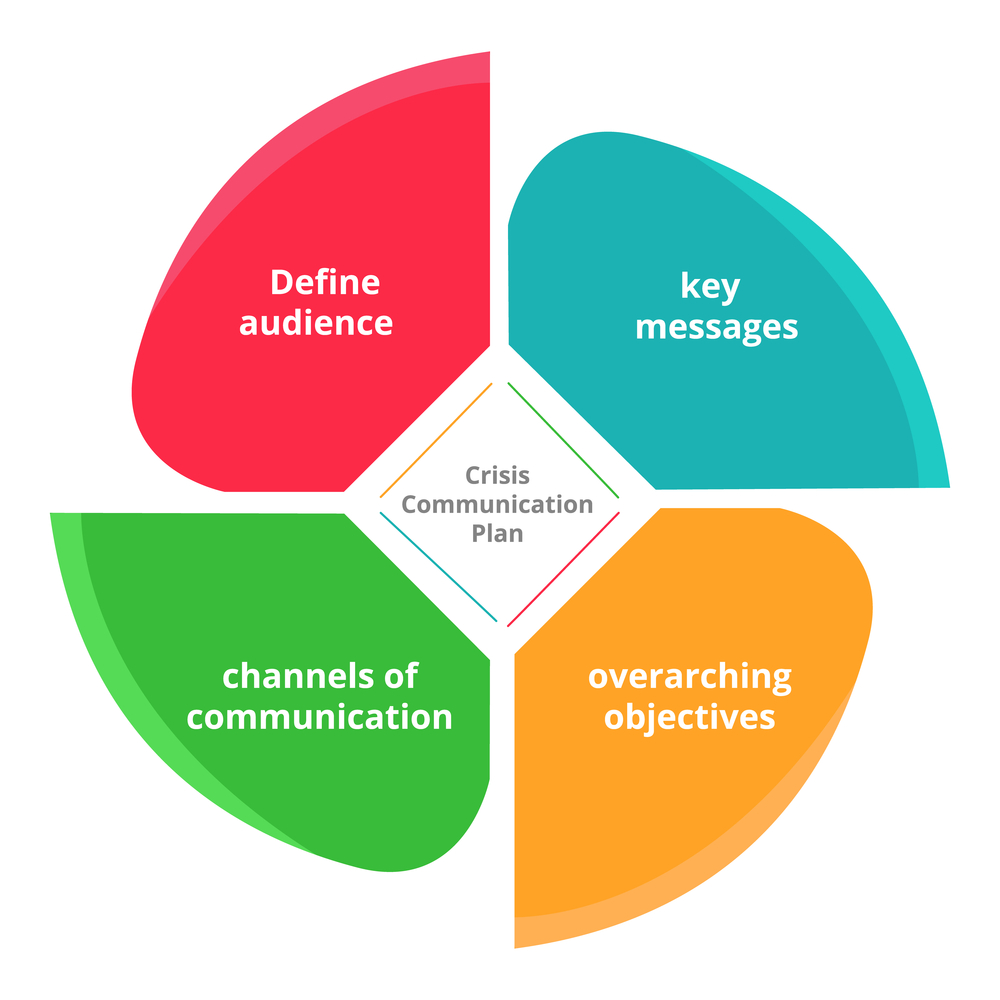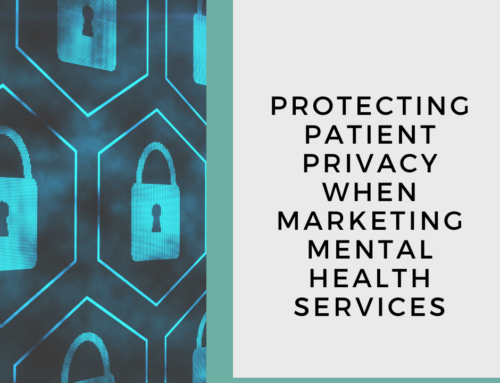Crises are inevitable in the dynamic and sensitive field of mental health marketing. They can arise from various sources – a miscommunication about a therapy, negative publicity, a sudden change in healthcare regulations, or a global pandemic. How mental health organizations communicate with internal and external audiences can make a difference during a crisis. This is where the role of crisis communication marketing for mental health comes into play.
Crisis communication is a critical aspect of any mental health marketing strategy. It involves managing the organization or company’s strategy and message during a crisis to maintain its brand’s reputation, keep key stakeholders informed, and minimize damage. This comprehensive guide aims to give you an in-depth understanding of crisis communication in mental health marketing, its importance, key strategies, common pitfalls, and how to craft an effective crisis communication plan.
We’ll also look at emerging trends in social media for crisis communication and how to adapt your social media channels to your mental health marketing strategies for future a crisis. Whether you’re a seasoned marketing professional working at a mental health business or new to the industry, this guide will equip you with the knowledge and tools to navigate crises effectively.
Understanding the Intersection of Marketing and Crisis Communication
In the specialized field of mental health services, the lines between marketing and crisis management often blur. The strategies employed to promote services and build client relationships are closely linked with the methodologies used to handle a crisis. This intersection is not merely a convergence of two distinct areas but a symbiotic relationship where one influences and shapes the other.
In this context, marketing isn’t just about promoting services; it’s also about creating a communication framework that can adapt to crises. Similarly, strong crisis communication and management isn’t just about navigating through difficult times; it’s about utilizing marketing channels to communicate effectively. This intersection, therefore, represents a holistic approach to managing and communicating during a crisis in the mental health field.
Critical Strategies for Successful Crisis Management in Marketing

In mental health services, crisis management goes beyond merely reacting to a crisis. It involves a strategic approach to crisis communication marketing combining marketing principles and crisis management tactics. Here are some key strategies that can help ensure successful crisis management in marketing.
Proactive Approaches for Crisis Communication
Being proactive is a crucial strategy in crisis management. This involves anticipating potential crises and preparing for them in advance. In mental health marketing, this could mean staying updated with the latest research and developments in the field, understanding clients’ common concerns and fears, and being aware of the broader social and cultural factors that could impact mental health services.
By being proactive, organizations can develop communication strategies that address potential crises before they escalate, thereby minimizing their impact. Additionally, proactive measures in crisis communications can help build client trust, demonstrating the organization’s commitment to their well-being and preparedness to handle any situation.
Reactive Strategies for Responding to a Crisis
Despite the best proactive measures, some crises are unpredictable and unavoidable. In such situations, the ability to react swiftly and effectively is critical. Reactive strategies in crisis management involve responding to the crisis promptly and appropriately. This could mean issuing a public statement, addressing clients’ concerns directly, or making changes to services based on the nature of the crisis.
In mental health marketing, a reactive strategy should also consider the emotional impact of the crisis on clients and aim to provide support and reassurance during difficult times. It’s about demonstrating empathy, maintaining transparency, and ensuring that the organization or company’s crisis response always aligns with its values and the expectations of its clients.
Common Pitfalls in Crisis Management and How to Avoid Them
While the crisis management process is complex, understanding common pitfalls can help organizations navigate a crisis more effectively. These pitfalls often exacerbate the crisis, damaging the organization’s reputation and client relationships. Here are some common mistakes in crisis management and how they can be avoided in the context of mental health marketing, ensuring a more effective and empathetic response to crises.
Pitfall 1: Lack of Preparation
One of the most common mistakes in crisis management is a lack of preparation before a crisis occurs. In the fast-paced and sensitive field of mental health services, a crisis can arise unexpectedly. Organizations that are unprepared for these crises may find themselves scrambling to respond, leading to delayed or ineffective crisis communication often. Organizations should invest in proactive crisis management strategies, such as developing a crisis communication plan, training staff in crisis response, and staying updated with potential crisis triggers in the mental health field.
Pitfall 2: Inconsistent Messaging
Inconsistent messaging during a crisis can lead to confusion and loss of client trust. This is particularly crucial in marketing for mental health, where clear and consistent communication can reassure and support clients during difficult times. Inconsistent messaging can stem from a lack of coordination among different departments or clarity about the organization’s stance on the crisis. This can leave clients feeling confused and anxious, further exacerbating the crisis.
To avoid this pitfall, organizations should ensure that their message and whole crisis communication strategy are consistent across all channels. This includes aligning the messaging with the organization’s values, ensuring that all staff are on the same page, and regularly updating clients about the situation. A mental health digital marketing agency can help ensure your messaging stays consistent, providing expert guidance and coordination to maintain clear and effective communication throughout the crisis communication team.
In the context of mental health services, these pitfalls can impact clients’ well-being, making it even more crucial to avoid them.
Crafting Your Plan for Managing a Crisis

Having a well-crafted plan is essential for effective crisis management. It provides a roadmap for responding when a crisis hits, ensuring the organization can navigate the crisis effectively and maintain trust with its clients.
Essential Elements of a Comprehensive Plan
A comprehensive crisis management plan should include key elements. First, it should define what constitutes a crisis for your organization. This could range from a negative publicity event to a sudden change in healthcare regulations. Second, outline the roles and responsibilities of different team members during a crisis.
This ensures that everyone knows what to do when a crisis hits. Third, the plan should include communication strategies for different types of crises. This could involve drafting template responses for common crisis scenarios or outlining the channels for crisis communication. Lastly, the plan should include a post-crisis evaluation process to assess the effectiveness of the crisis response and communication plan and identify improvement areas.
Implementing Your Plan Effectively
Once you have a crisis management plan, the next step is to implement it effectively. This involves training staff on roles and responsibilities during a crisis, conducting regular crisis simulations to test the plan, and updating the plan based on these tests and any changes in the organization or the mental health field. It’s also essential to ensure the crisis communication plan is accessible to all staff members and reviewed and updated regularly to remain effective. Remember, a crisis management plan is not a static document but a dynamic tool that evolves with your organization and the environment in which it operates. Follow these steps to ensure your crisis communication plan is executed correctly each time a crisis occurs:
- Training: Conduct training sessions to familiarize your team with the crisis management plan. Ensure everyone understands their roles and responsibilities during a crisis.
- Simulation: Carry out regular crisis simulations to test the effectiveness of your plan. This helps identify any gaps or areas for improvement.
- Review: After each simulation, review the performance and gather feedback from the team. Use this feedback to refine your plan.
- Update: Keep your plan updated based on changes in your organization or the mental health field. This could involve updating communication channels, adjusting roles and responsibilities, or incorporating new crisis scenarios.
- Accessibility: Ensure your plan is easily accessible to all team members. This could be through a shared digital platform or physical copies in critical locations.
- Regular Review: Schedule regular reviews of your plan to ensure it remains current and effective. This could be annually, biannually, or in response to significant changes in your organization or the mental health field.
By following actionable steps in this process, you can ensure that your plan is not just a document but a living tool that evolves with your organization and helps you navigate a crisis effectively.
Discover Expert Marketing Mental Health Services – Marketing Strategies for Future Crises
Navigating the complexities of mental health marketing requires a deep understanding of marketing principles and crisis management. With its specialized focus on mental and behavioral health marketing, Lead to Recovery is uniquely positioned to guide professionals and organizations through this intricate public relations landscape.
We help you sidestep common pitfalls, such as lack of preparation and inconsistent messaging across social media channels, which can amplify a crisis and erode trust. With Lead to Recovery as your mental health digital marketing agency, your marketing efforts will be resilient and effective, ensuring your message reaches your clients clearly and empathetically, no matter the circumstances. Call us at 866-202-4750 or book a discovery call with our team to discover how our services can help you today.




